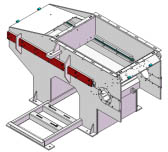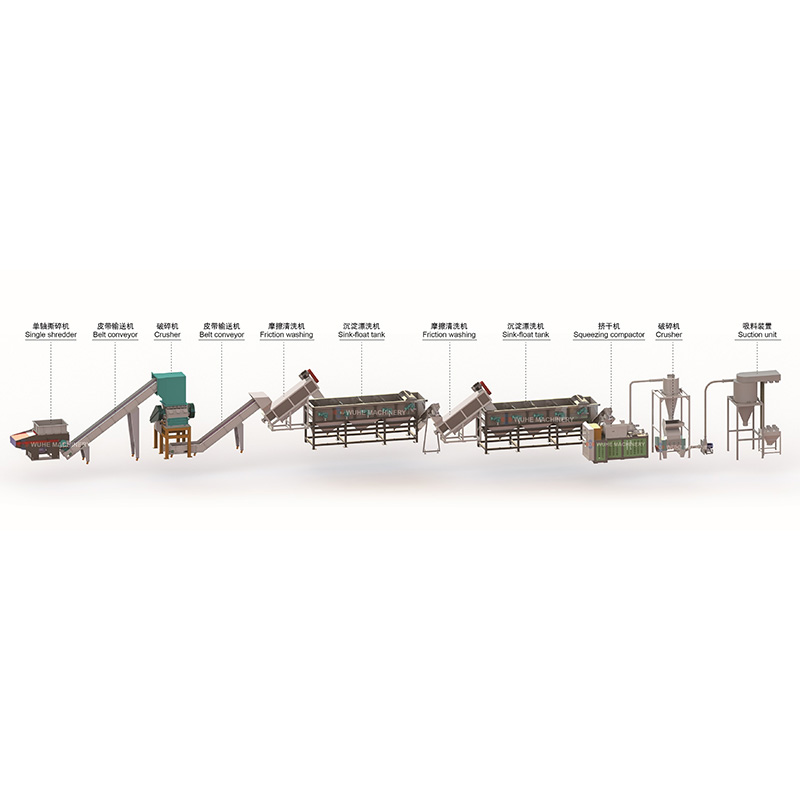As awareness grows around the world about the environmental impact of plastic waste, companies and municipalities are ramping up sustainability efforts and looking for solutions.
Zhejiang, China --News Direct-- KISS PR Brand Story Extruder Machine For Plastic

As awareness grows around the world about the environmental impact of plastic waste, companies and municipalities are ramping up sustainability efforts and looking for solutions. Key to these efforts are technologies like plastic granulators and recycling machines that allow for the efficient breaking down and repurposing of plastic waste.
Plastic granulators are powerful machines that fragment and grind plastic scraps into smaller, uniform pieces called regrinds or granules. The resulting plastic granules provide the feedstock for recycling and can be remade into new plastic products. Common plastic resins that are recycled include PET, PP, HDPE and LDPE.
"Plastic granulators are an essential first step in the recycling process," said John Smith, president of ABC Recycling Machinery. "They enable us to take in scrap plastic that would otherwise be destined for landfills and grind it into a raw material that can be reborn as new plastic products. It's a closed-loop system that creates less waste and uses fewer virgin resources."
There are numerous types of plastic granulators available that are tailored to different plastic scrap streams and volumes. The granulation process reduces the size of plastic feeds such as bottles, containers, film, engineering plastic and other leftovers from manufacturing or post-consumer use.
The granulator uses a cutting chamber and rotating knives to continuously slice the plastic until it is small enough to fall through a sized screen. The screen size and knife design can be configured based on the type of plastic stream input as well as the desired particle output size.
ABC Recycling Machinery offers heavy-duty granulators for large volume recycling as well as smaller bench-top granulators for converting scrap in a lab or small manufacturing setting. The granulators have safety mechanisms to prevent operator injury or contact with internal cutting components. Proper feeding rate, screen configuration, blade sharpness maintenance and stable ground anchoring are also critical to safe and efficient operation.
After being finely granulated, the plastic regrind goes through additional recycling machinery such as washers, separating equipment and extruders to create new recycled plastic pellets. These pellets can then be resold to plastic product manufacturers.
"Our automated recycling line takes in dirty plastic waste destined for the dump, grinds it into uniform chips, washes it, separates it by plastic type through float-sink tanks and melt filtration and extrudes it into clean recycled plastic pellets," Smith said.
Plastic recycling machinery enables this closed-loop circular production by processing tamper-proof plastic feeds back into commercially viable recycled plastic resins. More durable, high-quality plastics can go through this granulate-melt-pelletize recycling process multiple times without degrading material properties or quality.
However, all plastics are not created equal when it comes to recyclability. Plastics numbered 1 through 6 based on resin identification codes give a general indication of how easily they can be recycled.
Polyethylene Terephthalate (PET - #1) and High Density Polyethylene (HDPE - #2), prime examples of easily recyclable plastic, maintain durability through repeated recycling cycles and also have high consumer usage as packaging making them economical recycling targets.
"PET and HDPE together account for approximately two-thirds of our plastic scrap intake by volume," Smith said. "They come from common bottles, containers and films with established collection and values channels making them the shining star materials for profitable plastic recycling."
On the other hand, plastic polymer varieties numbered 3 through 7 are much more difficult to efficiently sort, separate and recycle. Their chemical makeup ranges considerably and breakdown properties can cause issues with recycling machinery. Many towns and cities lack collection infrastructure for these plastic waste streams as well.
"The low hanging fruit has been picked in terms of recycling PET and HDPE," explained Claire Brown, a plastic recycling technology expert. "We need continued investment and innovation around handling flexible packaging, multi-layer films, durables like electronics and appliances and composite plastics which contain other embedded materials."
One promising avenue is chemical recycling which can potentially handle more complex and contaminated plastic feeds. This breaks the plastic all the way down into liquid and gaseous hydrocarbon building blocks which are then repolymerized into new materials.
"Think of it like plastic waste cracked down back into its molecular fossil fuel origins and then built back up again," Brown said. "The process requires far less sorting and separation than mechanical plastic recycling. However, it is still early days in terms of commercial-scale feasibility."
Plastic granulators and mechanical recyclers still form the backbone of current plastic recycling efforts. And the good news is that growing government policy support and corporate sustainability commitments are drastically increasing investment into plastic waste solutions.
New US legislation calls for all plastic packaging to contain at least 30% recycled content by 2030. Consumer brands like Coca-Cola have pledged their PET bottles will contain 50% recycled plastic by that same year. Automakers are targeting higher percentages of recycled resins in vehicle parts. These rising portfolio standards create "pull-through" demand for recycled plastics.
At the same time, bans on single-use plastic bags and containers are expanding in states like California and New York. Landfill restrictions on commercial plastic waste streams incentivize recycling pathways. Financial mechanisms such as advanced recycling credits and tax breaks encourage further materials innovation.
"Legislators recognize unmanaged plastic waste poses risks to our communities and environment," Brown said. "Better design standards, collection infrastructure and new technologies can help mitigate these harms while also capturing the inherent value in used plastic."
ABC Recycling Machinery says they have purchased additional plastic granulators and sorting equipment to handle upticks in plastic scrap volumes. They are also researching chemical recycling partnerships to broaden output material capabilities.
Smith added that the United States recycling rate for plastic still lingers around 5-10%, significantly lower than rates achieved in the European Union. This points to major room for improvement.
"Between process enhancements, more advanced technologies and increased collection efforts, I expect US plastic recycling rates could realistically rise above 70% over the next decade," Smith said. "There are challenges still to overcome, but we have the tools and momentum on our side."
So while plastic waste certainly presents major sustainability challenges, targeted solutions like plastic granulators and recyclers are ramping up to meet the need. Watch for ongoing legislation, new innovations and recycling ecosystem upgrades that will enable a true circular plastics economy delivering environmental, community and business value.

Pvc Granule Machine View source version on newsdirect.com: https://newsdirect.com/news/breaking-down-waste-plastic-granulators-and-recycling-machines-drive-sustainability-efforts-237742472